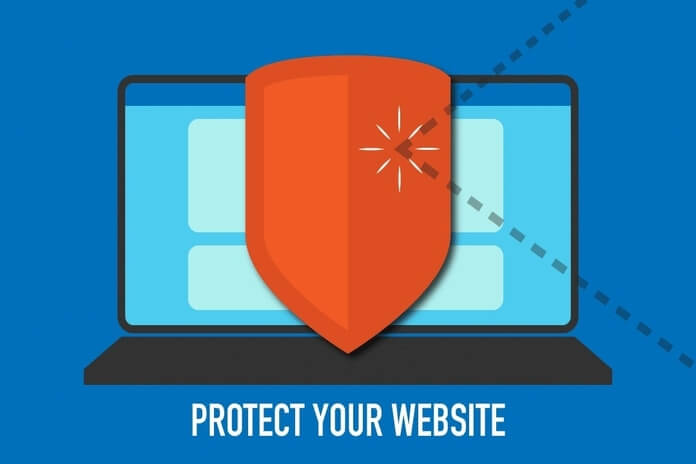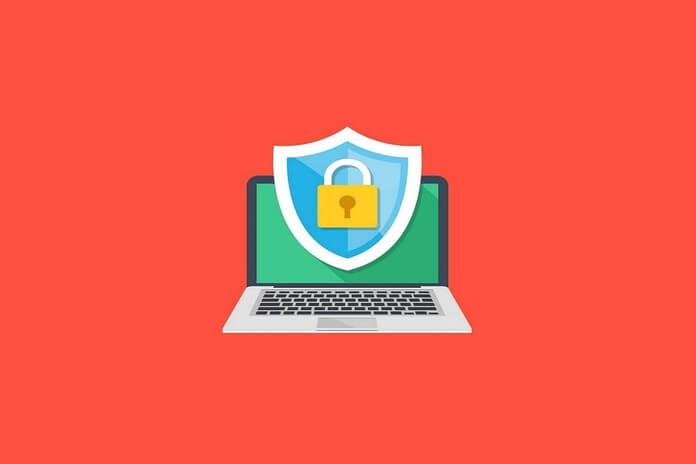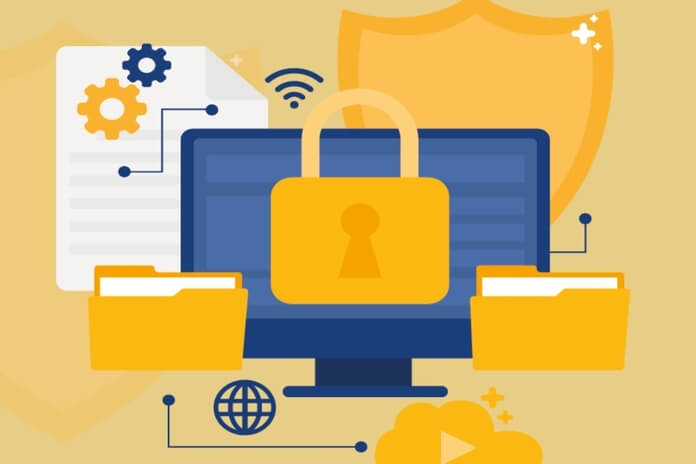Why Do Websites Get Hacked?
If you own a website, you are all too familiar with the dreaded day when you receive a message from your hosting company that your websites get hacked. A new site has been added to your site, causing it to be sluggish, and you have no idea how or why.
You worry, panic, and wonder what you can do to prevent this from happening again. You do everything you can, but at the end of the day, it can happen again and again and again. So take a step back and check your website.
If you wonder why websites get hacked, you should know that it is not your fault. Your website might be hacked because you didn’t have the time or resources to make it secure.
You might be having trouble securing your website due to a lack of knowledge. We all know how bad it feels when websites get hacked. However, if your site is brought down, there is a bit of a silver lining!
Hacking Ways
To find out why websites get hacked, it’s essential to understand how they get hacked and the damage they can cause. Hacking happens in various ways, but the most common are social engineering and drive-by downloads.
Social engineering is when a hacker tricks someone into giving up their password or allowing them to access their computer. It could be done by phone, email, or even text message.
Drive-by downloads are when a hacker secures your computer and then downloads a virus or other malware. Once they do this, the hacker can use your computer to hack other computers or use it for their gain.
About 66% of the business hacked are neither prepared to deal with cyber-attacks nor with a security breach’s financial or reputation damage.
If a website is not prepared for a cyber-attack, that website can be compromised, and the user’s data can be compromised.
Unfortunately, many websites get hacked even if they are ready to deal with cyber-attacks and a security breach’s financial or reputation damage.
Why Do Hackers Hack Websites?
You likely feel that you are not holding any state insider facts on your site, perhaps not in any event, gathering credit card information, yet you, despite everything, got hacked – why?
Even if you are the owner of a minimal website or only have a one-page structure with very little content, you will face this problem. What is the reason behind hacking such a small website?
It is neither you nor your site explicitly. Instead, programmers are focusing on the software that you use.
They target the software you use on your site and earn good enough money after they successfully hack your site.
According to an estimate, about fifty thousand websites get hacked daily, enough for the hackers to make money from them.
Indeed, even a little site can create a significant measure of cash.
Cybercriminals and web programmers can bring in cash with your undermined site by appropriating malware, SEO spam, and even establishing email spammers and phishing websites.
Cash is the most widely recognized inspiration driving the assaults. However, SEO spam is one of the methods hackers adopt to make money from hacking.
What is SEO spam?
It is essentially an activity of infusing backlinks and spam to legitimate websites. It stays one of the most benefitting and well-known kinds of site assaults.
When the website is undermined, a toxic secondary passage will transfer to the site. In addition, it offers access to the hacker, permitting him to undetectably divert your guests to their trick destinations whenever they need.
Aside from producing cash for the programmer, your website gets a penalty from web search tools which will destroy your SEO.
Integrating e-Commerce Features Into Social Media
Integrating e-commerce features into social media platforms enhances the shopping experience for users.
Programmers Use Malware
Malware is the worst way of attacking a website. Malware is malicious software, and it is a code that is made to disturb, impair, or assume responsibility for your framework.
It is usually covered up or masked as something different from the goal that scanners won’t discover.

How to Shield Your Sites from Hacking?
Cybercrime is a growing and severe problem, taking more and more attention from governments and the tech industry. Moreover, With more and more people gaining access to technology, hacking is becoming easier to do than ever before.
While it may be hard to work on the best methods to shield your site, you can do many things to make it more difficult for hackers to access. These methods are both accessible and cost-effective to implement. By using these 8 tips, you can stop websites get hacked.
8 Tips You Can Stop Websites Get Hacked
Password Manager
When we talk about protecting your website from hacking, it’s not just a matter of adding security measures and hoping for the best. For example, it would be best to make it hard for people to guess your password.
If a hacker can guess your password, they’ll gain access to your website and be able to do anything they want. A password manager is a way to make it easy for hackers to guess your password and stiff for them to guess your password.
Password managers store all of your passwords in one place, and they can generate a new password whenever you need one.
They make it easy to use a password manager. Another way to make it hard for hackers to guess your password is by using a one-time password.
You can find a one-time password generator online and make it harder for hackers to guess your password. However, no security measure can protect your website from hacking.
SSL Certificate
When it comes to cyber-security, one of the most important things you can do is ensure that your website is protected. There are several ways to ensure that this is the case, but one of the most important is using an SSL certificate.
It is a security protocol that encrypts all communication to and from a website. If your site is using an SSL certificate, even if a hacker intercepts data from your website, they will never be able to understand what it is.
You can use an SSL certificate to protect any type of web page that you have, including your blog.
Update Plugins to Stop Websites Get Hacked
If you are a website owner, staying up to date with the latest software and plugins is essential. Furthermore, updating your software and plugins is necessary regularly because of bugs and loopholes hackers can exploit.
Unfortunately, updates often feel unnecessary, but they often include essential patches to combat known viruses or weaknesses.
Moreover, if you’re looking for a way to prevent hackers from attacking your website, it’s best to be up to date with the latest software and plugins.
Admin Directories
Admin directories are a lodestone for hackers. If they discover the “Admin” folders to your internet site script, they could deal with hacking the one’s documents in preference to counting on a generalized attack.
By renaming your Admin directories, you are making this extra tough for them to do. You also can disable listing listings, which is a feature that allows you to control your content. You can do this by adding the “/uploads” to the end of your existing directory.
For example, if your website has a “Content” directory, change its name to “Content/uploads.” When you rename directories, it is harder for hackers to find valuable files.
Limit Login Attempts
If you want to prevent your website from hacking, you should limit login attempts. Limiting login attempts is a crucial piece of making your website more secure.
Many people would like to use a login system that blocks people who make too many attempts to get in. There are a few options available for this.
The first option is Limit Login Attempts Reloaded. It is a plugin that limits login attempts and reports all failed attempts.

Use Firewall
To prevent your website from hacking, you need to be proactive. It means that you should be aware of the risks of your site. You should also be familiar with the possible vulnerabilities of your website.
It is where a firewall can come in handy. A firewall is a software program that blocks an intruder. The firewall will install on your computer and allow you to block malicious programs.
It includes viruses, hackers, and other unwanted programs. Moreover, you can also use a firewall to block users from accessing your website.
It is essential to choose the software you use carefully. Some software may be more challenging to use than others. It’s critical to find a firewall that is easy to install, easy to use, and offers various settings.
Ask your IT department to recommend a firewall that they recommend.
Monitor Plugins
To prevent your website from hacking, there are many things that you can do. One of them is to monitor your WordPress plugins. A WordPress plugin is an application that is programmed to run on your WordPress site.
There are a lot of WordPress plugins available, and some are Abandoned plugins. Those plugins which are not updated in the last two years are called Abandoned plugins.
Make sure that your WordPress plugins are up to date, and if they are not, you can update them yourself. Ensure that you are not vulnerable to hackers by finding out if you have been active plugins.
Take Backup to Prevent Websites Get Hacked
If you take backup, it is the best method to prevent your site from hacking. You must have more than one backup on hand. Each backup is crucial to recovering your site after a significant security incident.
You can take Backups manually or automatically. If you use an automated solution, you will have backups done automatically, and then you can restore your site to a previous point in time. It is the safest method to prevent your website from hacking.
Conclusion
What’s more, indeed, you should stress over it. Remember that mysterious buildings or houses are freaky if you don’t check them for maintenance.
If you don’t have essential upkeep, safety efforts, and appropriate checking set up, your site can ruin with malware. To summarize, it is simpler to enable security measures to your site than to reestablish the area after being hacked.
Therefore, you must set up a high level of security for your site and follow the above techniques to prevent your site from hacking.








